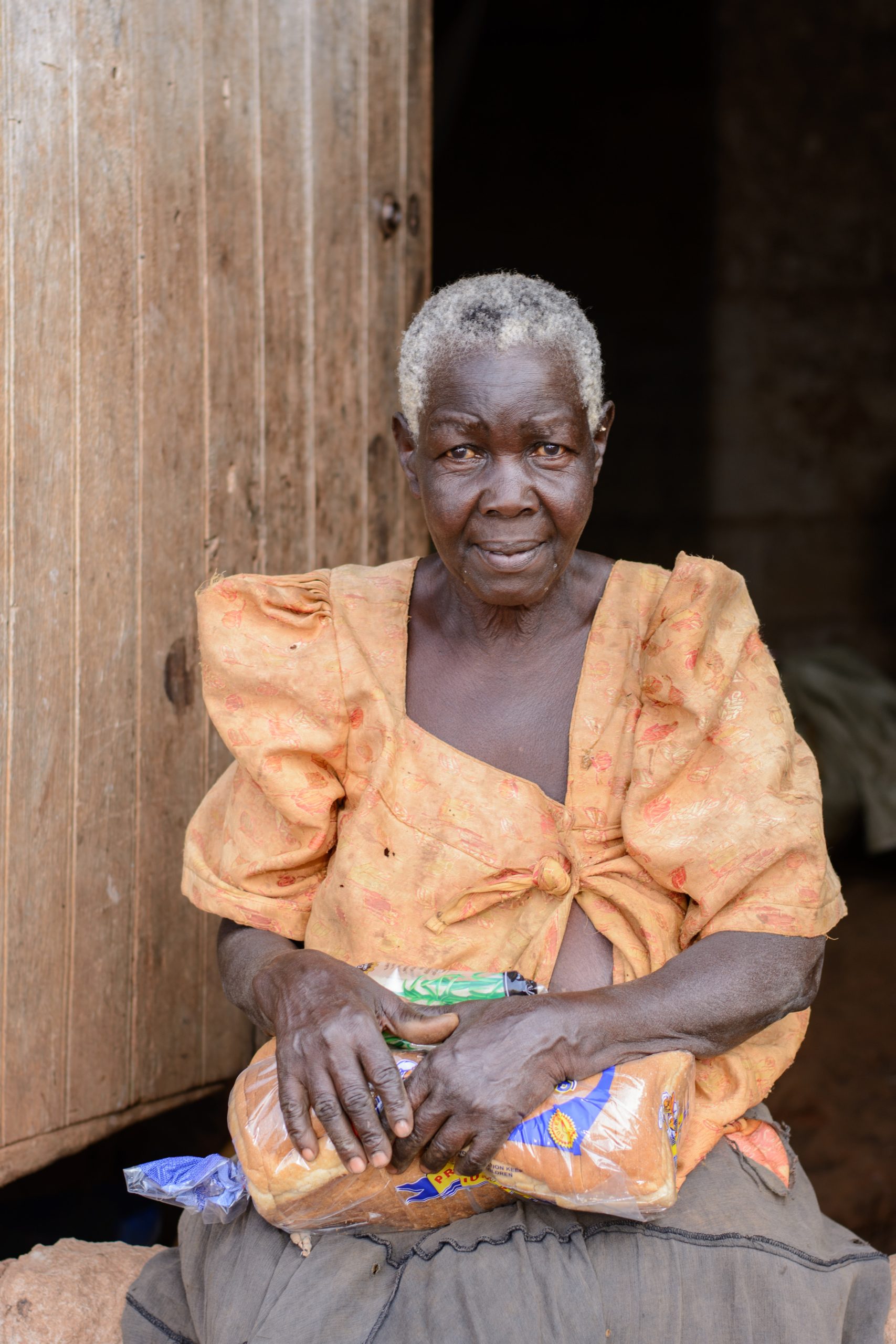Features
This is Why Nigeria Needs to Pay Closer Attention to Its Aging Population
In Nigeria, poverty remains a major challenge, and elderly persons, who have retired from the economic productive phase, are most vulnerable to experiencing economic hardship. For a country that has no functional welfare system for older folks, this category of people depends heavily on youths for survival and care. This, in turn, stresses the already dysfunctional economy of the country.
 In 2018, elderly people in Nigeria, aged 65 years and above, made up 3.1% or 5.9 million of the total population. Many of these people are economically vulnerable and depend heavily on younger Nigerians to cater to their needs. Unfortunately, Nigeria has a nonfunctional or inexistent social security system that caters to the elderly and vulnerable in our society.
In 2018, elderly people in Nigeria, aged 65 years and above, made up 3.1% or 5.9 million of the total population. Many of these people are economically vulnerable and depend heavily on younger Nigerians to cater to their needs. Unfortunately, Nigeria has a nonfunctional or inexistent social security system that caters to the elderly and vulnerable in our society.
Nigeria currently has a population of 206, 746, 317. Recent statistics have shown that the unemployment rate in Nigeria has jumped to 28.7%. This means that 59, 336, 192 Nigerian youths – out of 206,746,317 – are either jobless, do not work in paid employment, or do not work up to 40 hours a week. Additionally, the retirement age in Nigeria is 60 years or 35 years of unbroken active service. This means that most of the people who work in the civil service will be out of paid labour by the age of 65.
In Nigeria, poverty remains a major challenge, and elderly persons, who have retired from the economic productive phase, are most vulnerable to experiencing economic hardship. For a country that has no functional welfare system for older folks, this category of people depends heavily on youths for survival and care. This, in turn, stresses the already dysfunctional economy of the country.
In addressing why we all need to pay attention to the aging population of Nigeria, we have to look into how the neglect/poor treatment of older people is hurting (almost) every sector of our economy.
Healthcare
In Nigeria, older persons and their families struggle to cope with the physical and psychos-ocial health challenges that come with the aging process. The inability to manage the health challenges of many aged people has led to an increased demand for medical services and placed more pressure on our healthcare system which, in Nigeria, is already on the brink of collapse. This, in turn, also presents unique challenges to the elderly in Nigeria. In many countries, national health systems are programmed to build successful aging models to prepare for psychological, social, mental, and general health changes and challenges that may affect the older demographic of people. That way, older folks (or their family) can receive ample knowledge on living healthy lives and managing health changes when they occur.
The inability to provide such medical services is one reason why we have a lot of elderly people – who can still contribute to the country, economically – begging on the streets, sometimes with a swollen leg or neck. Many older people are also in and out of hospitals very regularly and those whose family members cannot afford medical bills are left alone to gradually waste away. For many Nigerians, the lack of access to information, concerning the health of older people and the poor living condition of many elderly people, is one reason why we have many older folks who are already down with life-threatening illnesses at their ‘early age of aging’. It is now very common to see a 65 or 70-year-old man/woman who spends half of his/her life in the hospital, cannot move from a particular spot, has to be fed and cleaned up, and so on.
One solution to this is to build affordable and sustainable health facilities for older Nigerians across all communities, LGAs, states, regions, etc., that can be used by all Nigerians, irrespective of financial prowess, and will also help them through the various health changes in aging. That way, we have more older Nigerians who will live healthy lives and can contribute to the growth of the nation.
Economically
Older people in Nigeria are largely disadvantaged. Still, they are often excluded from social protection programmes. In many cases, many civil servants do not get their pension after retirement. For instance, in December 2019, Premium Times reported that the federal government alone was owing retirees over ₦400 billion in accrued benefits. Many older folks cannot get any paid employment, in a country where 59 million youths are unemployed, many of them are also not being paid their dues. In the long run, they become redundant and heavily dependent on their children for care. This has led to greater economic stress.
This economic disadvantage also comes with a change in family dynamics. Many times, a member of the family, usually the daughter or the daughter-in-law, is expected to cater to the needs of the aged parent/parent-in-law because they don’t want to leave their aged parents in “the hands of a stranger”. Sometimes, it is because they cannot afford to pay a professional to attend to their aging – and, in most cases, ailing – parents. In many cases, such daughter or wife quits her paid job to take care of such parent, while other members of the family contribute money for the upkeep.
If there are better welfare packages for older people in Nigeria, the financial stress on families will be drastically reduced. No one will have to quit their job to take care of their older ones. For instance, Norway has the best income and employment rates for the elderly. There’s a 100% pension coverage, and only 1.8% of the elderly population has an income in the lowest quarter of national incomes. This means that older folks in Norway will be less inclined to depend heavily on the younger generation. Their quality of life will also be better and that way, they can contribute to the economic growth of Norway. This is what we need to achieve in Nigeria.
According to statistics, for every 100 Nigerian youth of 15 – 64 years, there is a dependency level, from age 0-15 and 65+, of 86.7 percent. This is one of the reasons why a lot of young Nigerians are struggling to break out of poverty.
Aside from welfare packages, we can establish centers where their knowledge, mental, and physical energy can be put to good use. Midwifery, community teaching, livestock farming, tour guiding, childcare worker, knitting/adire making, furniture making, and so on are few of the many jobs older Nigerians can do. This keeps them agile and makes them financially independent. In the process, they also impart knowledge and value to the younger generation.
If an 82-year-old man can be Nigeria’s ambassador to the US, there is no reason why older people cannot be given the utmost care and attention by the Nigerian government.
Cultural stereotypes
Another factor we need to look into is the cultural stereotypes attached to aging in our society.
The solitude and captivity we subject our older folks to is one of the reasons they lose their agility. Because many people want to protect their elderly, they confine them to the house, stop them from working, exercising or even taking a stroll. Consistent social interactions keep elderly people mentally, physically and emotionally fit. It reduces the likelihood that older people will experience the depression caused by isolation and loneliness. Let your older parent take a stroll, visit friends, be part of community functions/events/services.
Belief in the existence of witchcraft is also a social anomaly in Nigeria, where elderly people are accused of being witches/wizards and sometimes lynched to death. This can be brought to an end by providing a safe space/community for older people to live, especially for those who do not have family members to take care of them. We also need to sensitize Nigerians, particularly those who live in rural areas, on the many ailments that affect the elderly. Mental illness does not automatically mean diabolism.
Taking care of elderly people in Nigeria has more advantages: better quality of life, healthier citizens, financial stability, better economy, and many others. Let’s tap into that.
***
Photo by Dazzle Jam from Pexels



















